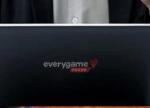Partial Privatization of Greek Gambling Monopoly Generates Disinterest
Posted: April 18, 2013
Updated: October 4, 2017
Potential buyers eye OPAP but few make an offer

Even though the Greek government had placed high hopes on the planned privatization of a third of national gambling monopoly OPAP, investor response to the offer was apathetic.
Being the first major company to be put up for – partial – sale, this was also meant as a pilot project to test the waters for future privatizations. As it is well known, Greece had to undertake numerous obligations in exchange for the billions of Euros in international financial aid that kept its economy from collapsing completely. One of these obligations was an extensive privatization program.
It must be said that the prospect of owning 33% of OPAP has evoked initial interest among a number of companies, such as prominent industry actors Playtech (UK) and Gauselmann (Germany), as well as investors like BC Capital or Fosun International, China’s largest privately held conglomerate.
A third of OPAP seems like a juicy bite at first. Greeks love gambling, the industry seems to be crisis-resilient and the company has been a clear moneymaker, helped by the fact that it offers the only legal way to bet on sports in Greece.
Nevertheless, these companies were all discouraged by the dismal overall state of the Greek economy, as well as regulatory uncertainties, exposing potential buyers to excessive risks. OPAP’s monopoly has been under attack from would-be competitors and the outcome is still far from settled, as EU pressure may still lead to changes in Greek gambling laws.
The Greek government has also levied a 30% tax on the company’s revenues effective from this year, leading to a projected freefall in profits. On top of it all, it is still not certain that Greece can remain in the Eurozone, adding a further matter of concern to the already large pile of issues.
In the end, only two companies submitted bids for the package, both financial investors. One of them is Third Point, an American hedge fund; the other one is Emma Delta, a vehicle created specifically for this transaction.
Third Point specializes in purchasing troubled Greek assets and the OPAP package would fit snugly in its existing portfolio. Transparency is not the chief virtue of Cyprus-based companies, but Emma Delta is apparently a vehicle for Greek, Russian, Czech and Italian investors. The latter is rumored to be the international gambling giant Lottomatica.
Should OPAP be permitted to retain its monopoly – or even extend it, if the government allows it to operate online casinos in Greece – the buyers would have a lucrative investment in their portfolio.
There are, however, too many unknowns in the equation, and this subdued interest in Greek assets certainly doesn’t bode well for the country’s plans to prop up its failing economy through large scale privatization.












